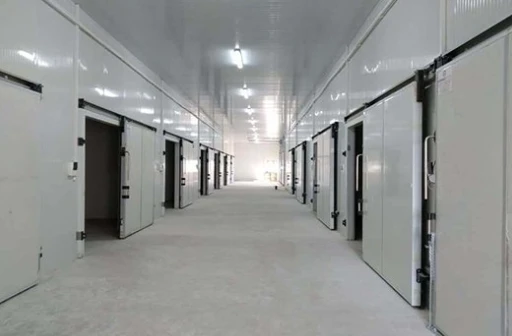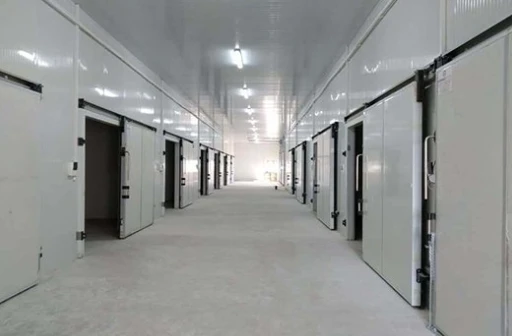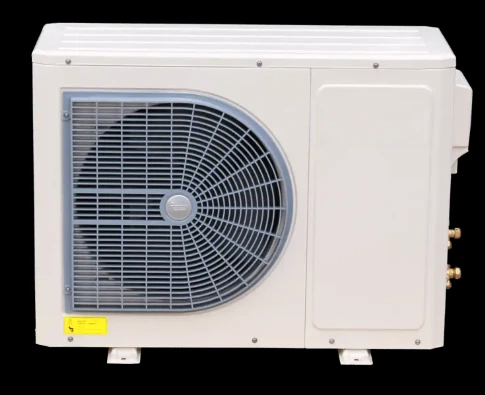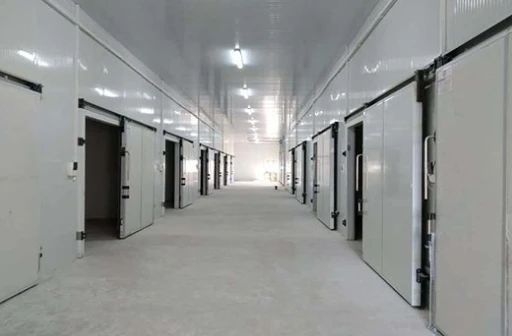The Role of Heat Recovery Systems in Refrigeration Condensing Unit
Industrial refrigeration systems are vital for industries like food processing, pharmaceuticals, and cold storage. However, these systems generate significant waste heat during operation, often expelled unused into the environment. Heat recovery systems integrated with refrigeration condensing unit offer a sustainable solution, capturing this thermal energy for reuse. For wholesale operations, where energy demands and costs are substantial, adopting these systems can drive efficiency, reduce expenses, and align with environmental goals. This article explores how heat recovery systems transform waste heat into a resource, focusing on air cooled condensing unit and their role in large-scale applications.
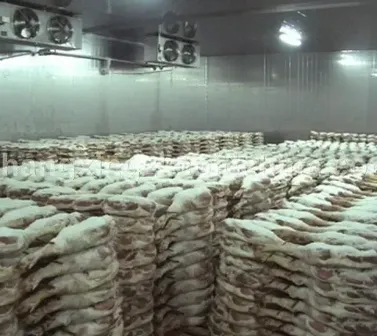
The Fundamentals of Heat Recovery in Industrial Refrigeration Condensing Unit
Refrigeration condensing unit are central to cooling processes, compressing and condensing refrigerant gases to release heat. Traditionally, this heat is dissipated via air cooled condensing unit or water-cooled systems. Heat recovery systems intercept this waste heat, redirecting it for practical uses like space heating, water preheating, or industrial processes.
In wholesale facilities, such as frozen food warehouses or beverage production plants, condensing units operate continuously, generating vast amounts of recoverable heat. By integrating heat exchangers or dedicated recovery coils, businesses can capture up to 70% of this thermal energy. For example, recovered heat might warm processing areas, reducing reliance on separate heating systems. This dual-purpose operation enhances the ROI of refrigeration condensing unit while cutting energy waste.
Advantages of Heat Recovery for Air Cooled Condensing Unit in Wholesale Operations
Air cooled condensing unit dominate industrial refrigeration due to their simplicity and lower water dependency. When paired with heat recovery systems, they offer unique benefits for wholesale applications:
Energy Cost Reduction: Reusing waste heat slashes heating expenses. A meat processing plant, for instance, could use recovered heat to sterilize equipment or maintain ambient temperatures in workspaces.
Sustainability Compliance: As industries face stricter emissions regulations, heat recovery helps meet sustainability targets by lowering carbon footprints.
Improved System Efficiency: Reducing the thermal load on air cooled condensing unit can enhance their cooling performance and longevity.
For large-scale cold storage facilities, integrating heat recovery with air cooled systems can offset up to 30% of annual energy costs, making it a strategic investment.
Designing Refrigeration Condensing Unit for Optimal Heat Reclamation
Retrofitting or designing refrigeration condensing unit for heat recovery requires careful planning. Key considerations include:
Heat Exchanger Integration: Plate or shell-and-tube heat exchangers are commonly added to capture and transfer waste heat.
Variable-Speed Compressors: These adjust cooling output based on demand, ensuring heat recovery aligns with operational needs.
Smart Controls: IoT-enabled systems monitor heat availability and prioritize its reuse in real time.
In wholesale settings, scalability is critical. Modular heat recovery systems allow gradual implementation, minimizing downtime. For example, a dairy processing plant might start by recovering heat for water preheating before expanding to HVAC support.
Overcoming Challenges in Wholesale Kondensaj Unuoj Heat Recovery
While the benefits are clear, adopting heat recovery systems in industrial condensing units presents challenges:
High Initial Costs: Customizing systems for large facilities requires upfront investment. However, government grants or energy rebates can ease this burden.
Maintenance Complexity: Additional components like heat exchangers demand regular cleaning and inspections. Partnering with specialized HVAC-R service providers ensures reliability.
Space Constraints: Retrofitting older air cooled condensing unit may require creative engineering to accommodate new equipment.
Case studies show that wholesalers who phase in heat recovery—starting with high-heat zones like compressor rooms—achieve faster payback periods.
FAQ: Addressing Key Questions About Air Cooled Condensing Unit
How do heat recovery systems impact energy efficiency in refrigeration condensing unit?
By reusing waste heat, these systems reduce the need for external energy sources, improving overall efficiency. For air cooled condensing unit, this also alleviates strain on cooling components.
Can existing air cooled condensing unit be retrofitted for heat recovery?
Yes. Retrofitting involves adding heat exchangers and piping. However, a professional assessment is recommended to ensure compatibility and ROI.
What industries benefit most from heat recovery in refrigeration condensing unit?
Food processing, breweries, and pharmaceutical storage—industries with high cooling demands and concurrent heating needs—see the greatest returns.
Are there standards for heat recovery systems in wholesale refrigeration kondensiga unuo?
Organizations like ASHRAE and ISO provide guidelines for design and safety. Compliance ensures system reliability and eligibility for incentives.
What is the typical payback period for wholesale refrigeration kondensiga unuo
Most large-scale operations recoup costs within 2–4 years through energy savings, depending on system complexity and local utility rates.
For wholesale operators, integrating heat recovery systems with refrigeration condensing unit is a win-win strategy. It transforms waste into a resource, cuts costs, and supports sustainability. As industries prioritize efficiency, innovations in air cooled condensing unit and smart heat reclamation will continue to redefine industrial refrigeration’s role in a circular economy. By addressing challenges through phased implementation and expert partnerships, businesses can unlock long-term value from their refrigeration infrastructure.
-
Tube Ice Machine Cost EffectiveNovaĵojSep.04,2025
-
IQF Freezer Locks in FreshnessNovaĵojSep.04,2025
-
Condensers Reject Heat EfficientlyNovaĵojSep.04,2025
-
Cold Room Door DurabilityNovaĵojSep.04,2025
-
Chiller Reduces Energy CostsNovaĵojSep.04,2025
-
Big Block Ice Machine Energy ConsumptionNovaĵojSep.04,2025













































































































